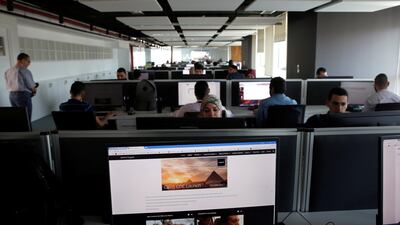I am the manager of a small unit at a big corporation. I am regularly involved in meetings to discuss progress and goals. The problem is some of the senior managers often arrive late or don’t show up at all and when they do, they often leave before the meeting is concluded. This leads to friction and frustration on my part and risks the whole forward movement of the unit grinding to a halt – not something senior management would approve of. How can I make them realise that full attendance of such meetings is vital to our future as an efficient operation?
JL, Dubai
As the manager of a unit, the responsibility of operating it efficiently lies with you, so I can appreciate how difficult it must be when you feel that your performance and success is potentially being compromised by the erratic time and meeting commitments of others.
You may also feel that your unit is not respected or supported sufficiently as a result of their behaviour. That being said, it is important to recognise that many corporations in the UAE have high cultural diversity, where the value of time may not have the same meaning across all cultures.
So let’s start by trying to gain a better understanding of the drivers, rationale, cultural constructions and time interpretations that could be informing your senior managements’ behavioural patterns. Being part of a big corporation, it is conceivable that your senior managers have many competing priorities and could well be giving you the proportionate amount of time that is pragmatically possible and available. Senior managers can get tied up in other high priority meetings and should these overrun, they may find it difficult to excuse themselves - particularly if there are more senior people in the meeting. Your senior management may be confident and comfortable in empowering a conscientious manager responsible for a small unit, to set their own goals. Similarly, they may also think that their presence is not always required for progress updates.
Moving forward with improving your situation and reducing your frustration, a good starting point would be to briefly put yourself in the shoes of your senior management. Try to develop some perspective and appreciation of their needs and challenges as we often have blind spots to the realities of others when we are very focused and dedicated to delivering our own parts of the business.
_______________
Read more:
Workplace Doctor: How do I convince a staff member they are up to the job?
Workplace doctor: Is my hardworking team overdoing it?
Workplace Doctor: Moving targets are hard to hit
_______________
Secondly, if senior managements’ time and presence can create a bottleneck to your efficient operations, consider how much of their time you really need? To effectively answer this question, you may want to reflect on the following: when taking decisions, which areas do you feel you benefit most from senior managements’ expertise and input?; how clear is your span of control and authority? If you are unsure, it may be worthwhile discussing and agreeing your scope and level of decision making in order to ensure optimal operational efficiency. Depending on your level of confidence and experience, perhaps you could agree to monitor the progress yourself and only engage senior managers when complex or high risk challenges arise?
Lastly, how aware are your senior managers of the impact their behaviour is having on your unit’s performance? If you do need to raise their level of awareness, it will require skillful and sensitive communication from your side without any form of blame or finger pointing in order to move towards a productive outcome. As already mentioned, you will need an understanding and appreciation of their realities while showing respect for their position, knowledge and expertise. Engage them to elicit their advice on how to effectively ensure the consistent standard of the unit’s operational efficiency. Start exploring what you could do differently - for instance, when meetings are required, what times, days or locations would make it more convenient for them to attend? Agree to only engage them by exception when their specific skills and expertise are essential, or by exception reporting, so if everything is on time, on budget and to specification, there is no need to impede on their busy schedules.
Doctor’s prescription:
To influence upward effectively and encourage the senior managers to be more present and timely will require strong communication skills from you. Show them how your unit’s effective operation is relevant to their top priorities and be ready to step up and fill the gaps that their absences are currently leaving.

